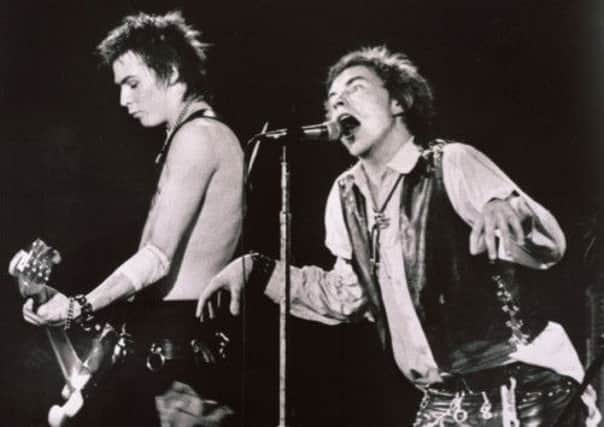Virgin Records celebrate ‘40 years of disruptions’


Nowadays, with his focus on Virgin Galactic’s space travel programme,not even the sky is the limit for Richard Branson but, back in the early 1970s, the 22-year-old hippy entrepreneur-in-the-making started out running a record mail order service. When a postal strike threatened to derail the operation, he opened a record shop instead, catering to his peers’ left-of-centre tastes, and then set up his own studio which, in turn, led to a fateful meeting with a shy young musician called Mike Oldfield…
Branson has not been involved with the label since selling Virgin to EMI in 1992 in order to bail out Virgin Atlantic Airways. Virgin EMI is now part of Universal Records, a beast swallowed by a behemoth.
Advertisement
Hide AdThese later years are largely overlooked on the five triple CD sets released this week, so many of the label’s biggest hitters such as Phil Collins, George Michael, The Spice Girls and The Verve - whose 1997 album Urban Hymns is Virgin’s top-selling album in the UK – are not represented. Instead, the compilations reach into the furthest corners of the catalogue, placing cult gems beside enduring classics.
The first triple CD Losing Our Virginity captures the early experimental, progressive years. The knowingly titled Never Trust A Hippy documents the cultural earthquake of punk and the strong reggae roster of their subsidiary Frontline Records. New Gold Dreams provides a snapshot of the label in the early 80s, from synth pop to esoterica. Methods Of Dance concentrates broadly on Virgin’s electronica of the 1970s and 80s, while Fascinating Rhythms brings the label’s dance music output up to date.
These compilations tell a particular story, one from which we shall deviate only slightly on a whistle-stop tour of the label’s finest zeitgeist-capturing moments. And no, that does not include T’Pau’s China In Your Hand.
Virgin hit the jackpot with their debut signing – a teen bedroom boffin who had recorded an ambitious instrumental suite at Branson’s studio. When no one else would sign him, Branson and his business partner Simon Draper decided to set up a label, named to acknowledge their lack of experience, and release it themselves. This was more than beginner’s luck - to this day, the Tubular Bells album remains one of the label’s biggest successes.
The way Branson tells it, he was looking to poach The Pistols from their first label EMI. The morning after their infamous television interview with Bill Grundy, he was informed he could have ’em. They were signed to Virgin later that day – but not before signing to rivals A&M for a couple of hours that morning... In their wake, X Ray Spex, Penetration, The Skids and The Ruts joined the Virgin club.
Howard Devoto tired of punk the moment it became a three-chords-good-four-chords-bad formula. He left The Buzzcocks, formed the magnificent Magazine and took his new band of weirdos straight on to Top Of The Pops. Other post-punk buccaneers on the label included Rip, Rig + Panic, featuring a young Neneh Cherry.
Advertisement
Hide AdOh brave new world that has such machines in’t. Virgin developed a particularly strong synth pop roster in the early 80s, including OMD, Heaven 17, Japan and a little band from Scotland called Simple Minds.
In 1981, the League’s Don’t You Want Me became Virgin’s first ever chart-topping single and ultimately its biggest selling single in the UK.
Advertisement
Hide AdIs it a boy or a girl? The debate raged through the nation’s playgrounds the day after Culture Club’s debut performance on Top Of The Pops. Boy George took David Bowie’s sexually ambiguous schtick in a cuddly, non-threatening direction and a global star was born.
A great party record which just happens to signal the birth of commercial house music as we know it. Kevin Saunderson’s vanguard outfit were swiftly followed by UK pioneers such as Soul II Soul and Massive Attack, as well as the flabbier end of baggy (Paris Angels, The Mock Turtles) and hippy techno acts System 7, The Grid and Future Sound of London.
For better or worse, the effervescent Spice Girls became the blueprint for manufactured pop music quicker than you could objectify and nickname the members. Good tunes though.
Emeli Sande, Bastille and David Guetta are the label’s current top sellers – only time will tell if anyone cares in the long term. But Laura Marling is an investment of a different kind, a single-minded artist in the vein of those early signings.
Virgin Records 40th anniversary compilations are out now